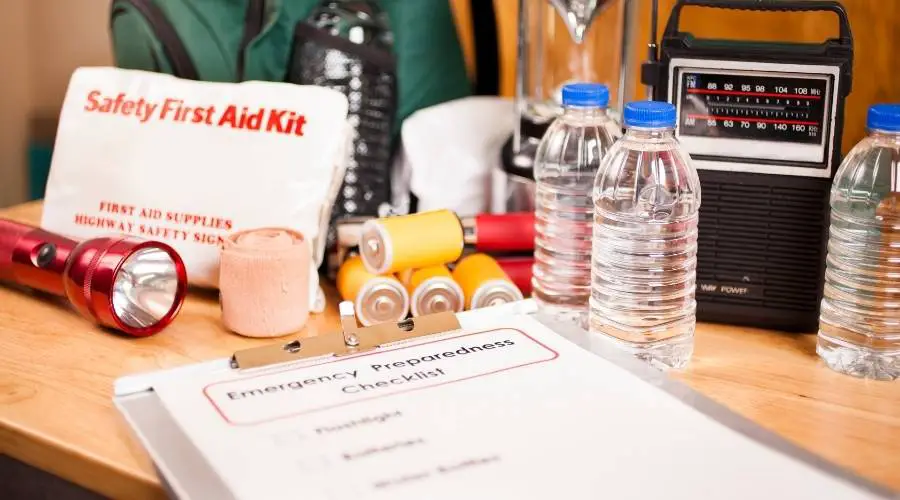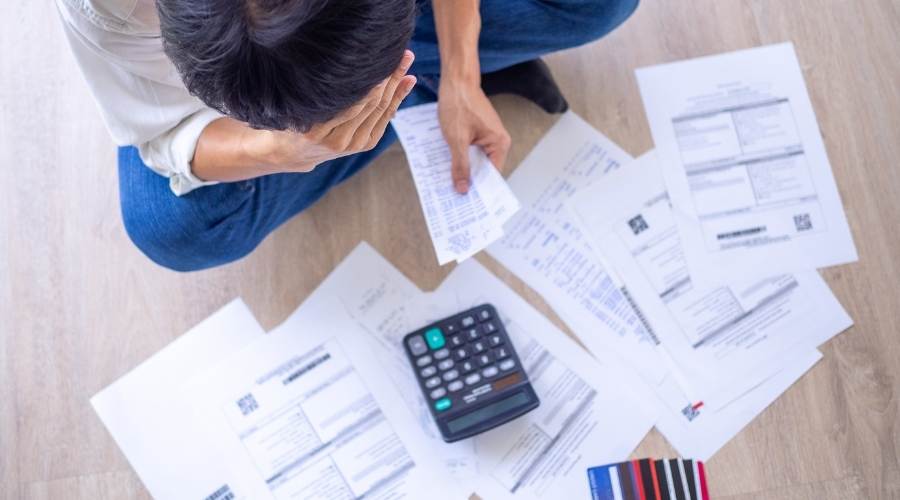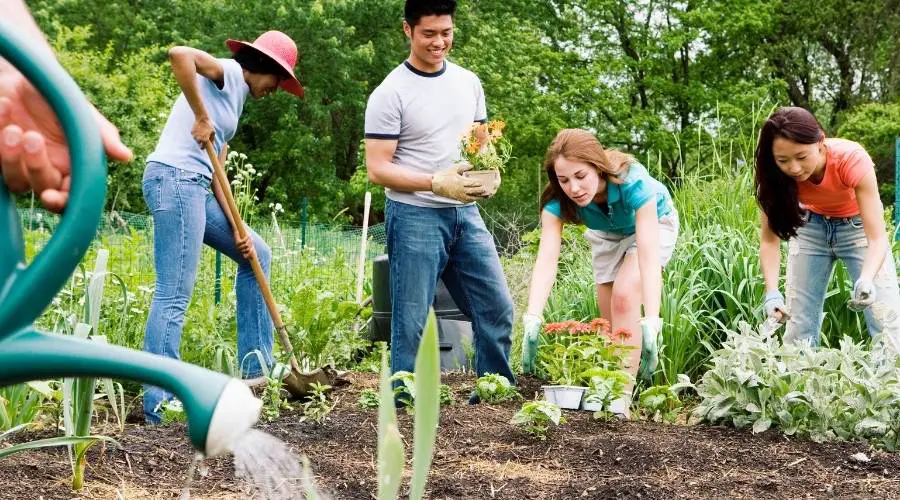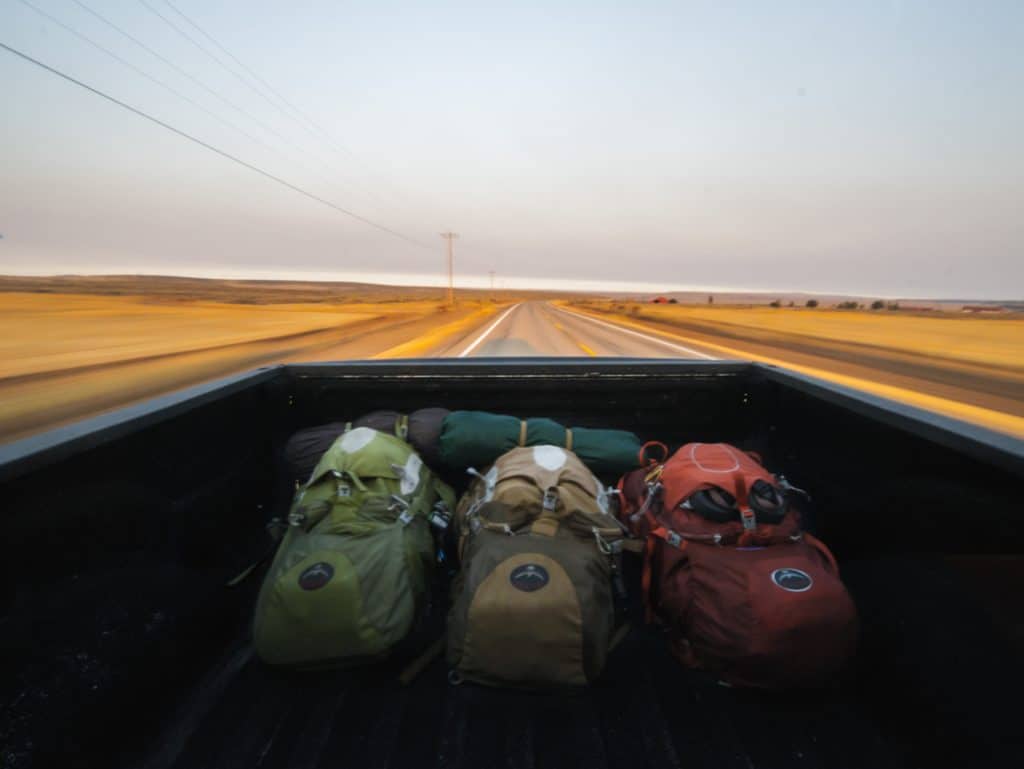In recent years I’ve observed increasingly unstable markets and economies, disrupted supply chains, shifting product demand, plummeting affordability (inflation), skyrocketing consumer debt, and various widespread crises. This has increased my worry about a looming economic collapse, depression, and/or recession throughout the world including in the United States.
I’ve spent the last couple of years researching and preparing for the potential of an economic depression, collapse, or even just another serious recession. There are ways that each of us can prepare for and feel confident and secure that our families will not only survive an economic depression or collapse but thrive both during and after if one were to occur. So how can you prepare for and survive an economic collapse or depression?
What is an economic collapse? Depression? Recession?
- “An economic collapse is a breakdown of a national, regional, or territorial economy that typically follows a time of crisis.” – Investopedia
- “An economic depression includes a long-term downturn in economic activity, large increases in unemployment, banking or financial crisis, bankruptcies, price deflation, financial crises, stock market crash, and bank failures for sustained periods of time.” – Wikipedia
- “A recession is a business cycle contraction when there is a general decline in economic activity. Recessions generally occur when there is a widespread drop in spending.” – Wikipedia
The best way to survive an economic collapse or depression is to prepare now by building a supply of life-sustaining items including food and water, diversifying your financial portfolio, managing financial stress, spending less and preparing for job loss or other unforeseeable crises, building relationships, learn self-reliance skills, and stockpile tools and items that make you self reliant.
16 ways to prepare for and survive an economic collapse, depression, or serious recession:
- Store supplies that are necessary to sustain life
- Diversify your financial portfolio
- Manage financial and life stress
- Prepare for a possible job loss
- Prepare to spend less and live without nonessentials
- Learn to grow your own food
- Learn to preserve your own food
- Build water storage and a reliable water filtration system
- Stockpile and learn to use useful tools
- Become energy independent or learn to live for a time without electricity
- Build relationships with a community of self-reliant people
- Learn new skills that can build self-reliance
- Prepare to protect your family
- Move out of the big city or be prepared to bug out to a rural community at a moment’s notice
- Focus on the essentials
- Have a current passport
1. Build up and store supplies that are necessary to sustain life
To best prepare for and survive a financial collapse you should build up a stockpile of supplies and items that are necessary to sustain you and your family’s lives. These supplies inevitably include food and water but also items or tools that allow you to effectively preserve, store, and cook your stored food. Also, tools to help you grow your own garden and even raise chickens, cows, and other animals in a small farm if feasible. Additionally, alternative sources of power, ways to stay warm without power, cook without power, and resources to bug out or leave where you currently live if necessary.

List of items to consider getting and storing to help survive a financial collapse:
- Long-term food storage (see list)
- Foods that last a long time without refrigeration (see list)
- Water storage (see water storage calculator)
- Emergency water filters
- Cash (in case of a banking holiday or other crisis)
- Food preservation methods/tools (freeze dryer, food dehydrator, freezer, pressure canner, water bath canner, etc.)
- Grain mill or wheat/flour grinder (see best grinders)
- Medications and over-the-counter drugs
- 72-hour kit (including medical supplies)
- First Aid kits
- Emergency car kit (see ideas)
- Generator or another type of backup power
Start buying extra shelf-stable foods every time you go to the grocery store to build up a good supply of food storage. You can save money by finding the cheapest grocery stores and buying generic brands. Also, find an Amish store near you to buy bulk food storage items often at a discount.
2. Diversify your financial portfolio so it can manage an economic collapse or depression
Throughout history, wealth and value haven’t just been lost it always transfers from one currency and financial system or asset to another. So to correctly prepare to survive an economic depression or collapse you can safely plan and diversify your financial portfolio in things that will hold value even if a currency or current systems devalue and fall apart.
The assets that will hold value even through a financial crisis, depression, or even a collapse have always been hard assets like commodities (including real money like gold and silver), land (including farmland), real estate, and other items that carry bargaining power.
List of Assets to consider buying to diversify your portfolio:
- Gold
- Silver
- Industrial Metal
- Land/real estate (especially in a rural area)
- Farm Land
- Raise your own meat (Cattle, Chicken, etc.)
- Alcohol
- Gasoline
- Energy (oil, natural gas, coal, solar, wind, hydro, biomass, and geothermal)
- Crypto Currency (a small percentage of your financial portfolio to have purchasing power outside of banks)
One of the most important things I’ve invested in is my own financial education. Take time to know how the economy works.
3. Manage financial and life stress
Learning to manage financial and life stresses will help you survive a depression or economic collapse. Personal finances are one of the most stressful things to deal with for individuals and families. Living within your means and preparing for a rainy day will allow you to feel financially free and take a lot of stress off of your plate.
Take these steps to free yourself of the financial stress which will leave you prepared for a possible depression:
- Get out of Debt (especially credit card debt).
- Focus on making one financial decision at a time.
- Track your expenses and cut out unnecessary spending.
- Identify your personal financial stresses and make a plan to reduce your expenses.
- Find healthy ways to deal with financial stressors (for example exercise instead of smoking or drinking).
- Avoid your personal temptations.
- Find support and be open with your spouse or loved ones.
4. Prepare for a possible job loss
One of the last big indicators of an economical depression or recession is a widespread loss of jobs. It’s very difficult to say what industries or companies will struggle and lay off the most workers so preparing yourself for a job loss is an important way to prepare for a recession or depression.
Having a cash reserve of at least one month worth of expenses, two-three months’ worth would be even better. Having the extra cash held aside will help you feel confident and much less stressed when things get difficult.
My favorite way to prepare is to start side businesses that create alternative sources of income. This is a good opportunity to diversify your income and will make you far more resilient to handle a future economical depression, recession, or even a wider spread collapse.
5. Prepare to spend less and live without nonessentials
It is not fun or pleasant to think about but preparing yourself and your family to spend less and live without some things that aren’t essential will be a necessary part of surviving an economic downturn or collapse. Simply identify things that you can cut out of your regular budget. Make a priority list so you know what to cut first when the time comes. Cutting out things such as entertainment, vacations, subscriptions, and other nonessential or indulgent products is a good place to start.

6. Learn to grow your own food
Starting a home garden and learning how to grow a variety of your own food is a great way to be prepared to survive any kind of economical crash or depression.
10 steps to start a home garden recommended by the National Gardening Association.
- Find the right location – Choose a location for the garden that has plenty of sun, ample space, and close proximity to a water source.
- Select vegetables – Decide what products to include based on your climate, space, tastes, and level of expertise. Newcomers may want to consider some of the easier crops to grow, like carrots, beans, cucumbers, peppers, and lettuce.
- Prepare soil – Mix compost and natural fertilizers into your garden to condition the soil for your plants. Garden supply stores can test the acidity of your soil and recommend supplements.
- Check planting dates – Growing conditions and ripening cycles are different depending on the plant and the season, so you should not sow all the seeds at the same time. Planting dates can be found on seed packets. See a gardening schedule.
- Plant seeds – Place your seeds or plants into the soil, following the depth and spacing directions carefully.
- Water – Gently spray the garden with water to keep the soil evenly moist throughout the growing season.
- Prevent weeds – Mulching is the most effective way to prevent weeds. Add a 2- to 4-inch-thick layer of organic mulch to your garden to keep the weeds from overtaking your crops. If weeds do appear in the garden, grab them low on their stems and yank sharply, making sure to extract the entire root.
- Give plants room to grow – Check the spacing guide on the seed packets and be sure to remove crowded seedlings right away.
- Fertilize – Lightly till the soil by hand and add fertilizer to keep it rich. You can purchase prepared garden fertilizer or make your own from items like Epsom salt, eggshells, fish tank water and kitchen compost.
- Pick, enjoy, preserve, and store – Harvest vegetables when they’re young and tender—but only pick them when you plan to use them. Pull root crops as soon as they reach edible size. Finally, enjoy but also preserve your harvest!
7. Learn to preserve your own food
To be prepared for a serious economic recession, depression, or collapse you will need to know how to preserve your own food. There are several food preservation methods that you can choose from like canning or drying, as well as tools or equipment to help you.
Food preservation methods include:
- Freeze drying (see what can be freeze-dried)
- Dehydrating (see what can be dried)
- Canning (pressure and water bath)
- Freezing
- Fermenting
- Pickling
- Food storage and packaging
Food preservation tools and equipment:
- Freeze Dryer (see if buying one is right for you)
- Food Dehydrator (buyers guide)
- Pressure Canner
- Water Bath Canner
- Freezer
- Grain Mill/Flour Grinder (buyers guide)
- Mylar Bags
- Oxygen Absorbers
- Mason Jars w/ Lids
- Vacuum Sealer w/ bags
- Food grade buckets or containers
8. Build water storage and a reliable water filtration system
Food and water are two of the most important things you can have on hand in the case of any emergency, especially during an economic collapse or depression. According to the CDC, you should store one gallon of water per person per day for emergencies. A good allocation would be 1/2 a gallon for drinking, 1/4 a gallon for cooking, and 1/4 a gallon for washing.
Tips to help plan your water storage and filtration
- Water Storage Calculator: How much water should you store/stockpile?
- How do you store large amounts of water? Long-Term Water Storage
- Selecting the Best Emergency Water Filters: Buyers Guide
- How Long Can Water be Stored Before it Goes Bad?

9. Stockpile and learn to use useful tools
In order to be prepared for an economic collapse, it is critical to have a generous supply of useful tools and know how to use them safely. During times of economic crisis and uncertainty, you may have to go a duration of time without common goods and services so having tools to help with basic homesteading, cooking, gardening, hunting/self-defense, carpentry, and survival will be invaluable.
Useful tools to help survive an economic collapse include:
- Knife (see on Amazon)
- Axe and Hatchet
- Hammer
- Drill & Impact Driver with various bits
- Water storage and other storage containers
- Handsaw or even chainsaw (other woodworking tools can be useful)
- Pliers (set of various types)
- Nails
- Staple gun and staples
- Solar panels and/or windmill
- Generator (see dual fuel option on Amazon)
- Tape ruler and pencils
- Gloves, safety glasses, and earplugs
- Wrenches (various types)
- Allen Wrench set
- Rope
- Extension cord
- Ladder
- Indoor safe alternative heaters
- Gardening tools (shovels, rake, pruner, hoe, wheelbarrow, gloves, etc.)
- Emergency cooking tools (propane stove, grill, etc.)
- Hunting firearms and ammunition
- Food preservation tools
10. Become energy independent or learn to live for a time without electricity
It is likely that during an economic collapse you will experience blackouts and go for extended periods of time without electricity. Preparing to live for up to a couple of weeks without electricity is critical for you to continue living in a reasonable fashion.
The most common way to prepare is to increase your energy independence through solar panels and a backup generator.
There are several options for backup generators that work well. For emergencies, I’d suggest looking at generators that have a dual fuel option so they can run off of gasoline or propane.
This is the dual-fuel generator that we use and recommend (see on Amazon). It has been reliable for years and can power anything in our home that we need to use.
11. Build relationships with a community of self-reliant people
Find like-minded, self-reliant people to build up a local community that can work together during times of crisis. This is often overlooked but will make all the difference if there were to be an economic collapse. I am a part of a great group of people in a rural community where my parents live as well as a group of people in my church that together bring skills to the table that will make surviving any kind of crisis or collapse very manageable.
In addition to a local community, it is a great idea to join social media groups such as this preparedness group on Facebook and/or this preppers group on Reddit.

12. Learn new skills that can build self-reliance
Dedicating time to learning self-reliance skills will prepare you to survive an economic collapse or depression. Self-reliance skills are arguably just as important as having a stockpile of preparedness tools so invest a portion of your time in learning essential skills.
Self-reliance skills include:
- First aid
- Emergency cooking
- Boiling water without power
- Preserving foods
- Gardening
- Hunting and reloading ammunition
- Farming
- Emergency heating
- Water purification
- Cooking from scratch (food storage cookbook)
- Home security
- Sewing
- Beekeeping
- Raising Poultry and Livestock
- Building sheds, shelters, barns, or enclosures
- Sharpening tools
- Fishing and preparing fish to eat
- Collecting rainwater
13. Prepare to protect your family
In a worst-case scenario, a financial collapse might make it necessary to learn how to protect yourself, your family, and your property.
The best way to do this is to deter the likelihood of people even attempting to break into your home. I suggest you do this by living in a good rural neighborhood if possible or at least know your neighbors and have a neighborhood watch group. Also, always lock doors, have motion-detected lights, security cameras, and a view-blocking fence.
The next level of self-defense is taking classes and becoming trained. In addition to training is to have firearms in your home that are meant for self-defense. Make sure that your firearms are only accessible to you and family members that are old enough, responsible, and trained to use them safely.
14. Move out of the big city or be prepared to bug out to a rural community at a moment’s notice
In the event of an economical depression or collapse, it will become increasingly difficult to live and survive in densely populated cities. Crime will skyrocket and your family’s safety will be greatly compromised.
For most, it won’t be reasonable to move to a rural community or own a second property so having a bug-out plan and supplies will be very important. Plan to be able to gather the stuff that you would need within a short time frame so that you can leave at a moment’s notice. If possible own a camper trailer or tent so that you can live on the move in necessary.

15. Focus on the essentials
As you would during any economical recession or depression you need to prepare yourself and your family to live without things that are not essential to sustain life. Most of the things that we consume now can be lived without but we do need food, water, safety/security, shelter, and love.
Please always remember that there are family and loved ones that likely feel stressed and need to know that you love and care about them. You and your family will feel some level of relief just by having a plan, extra food, water, security, and a home with people who love each other.
16. Have a current passport
It is a good idea to have a current passport on hand just in case everything collapses in the country that you live in. If you have no other options you can always leave your country and a passport will help you do that.
Conclusion
As you plan to survive an economical depression or collapse list those things that you and your family need to survive and build your self-reliance. These are the things that you should work to obtain and the skills you need to learn. As you do you will be able to survive and even thrive during any recession, depression, or economical collapse.


